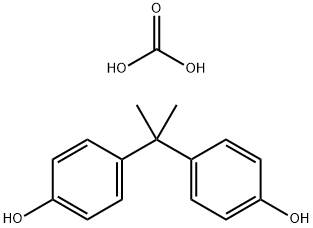Polycarbonate , meltindex:10g/10min(300°C/1.2kg) , 25037-45-0
Synonym(s):
Poly(bisphenol A carbonate);Poly(dian carbonate);Poly[2,2-bis(4-hydroxyphenyl)propane carbonate];2,2-Bis(4-hydroxyphenyl)propane-carbonic acid copolymer;4,4′-Dihydroxydiphenyl-2,2-propane carbonate polymer
| Pack Size | Price | Stock | Quantity |
| 250G | RMB639.20 | In Stock |
|
| others | Enquire |
PRODUCT Properties
| Melting point: | 220~230℃ |
| Density | 1.2 g/mL at 25 °C(lit.) |
| refractive index | n |
| solubility | chlorinated solvents: soluble |
| form | tubes |
| color | clear |
| Dielectric constant | 2.9(Ambient) |
| EPA Substance Registry System | Carbonic acid, polymer with 4,4'-(1-methylethylidene)bis[phenol] (25037-45-0) |
Description and Uses
Polycarbonates are plastics widely used in modern industry having good temperature and impact resistance. This plastic is particularly good to work with more conventional definition techniques (injection molding, extrusion into tubes or cylinders and thermoforming). It is also used when optical transparency is needed, having more than 80% transmission up to the 1560-nm range (short wave infrared range). It has moderated chemical resistance properties, being chemically resistant to diluted acids and alcohols. It is poorly resistant against ketones, halogens, and concentrated acids. The major disadvantage associated with polycarbonates is the low glass transition temperature (Tg> 40°C), but it is still largely used as low-cost material in microfluidic systems and also as a sacrificial layer.
Safety
| Symbol(GHS) |  GHS09 |
| Signal word | Warning |
| Hazard statements | H400 |
| Precautionary statements | P273-P391-P501 |
| WGK Germany | 3 |



